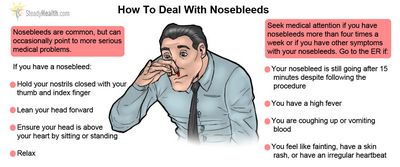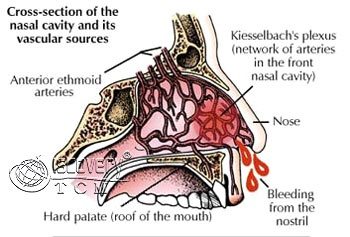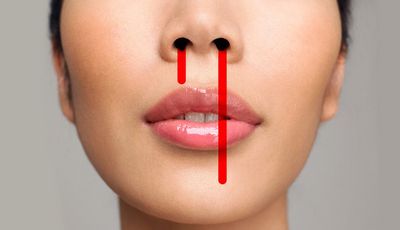What Causes Nose Bleeds?
There are a few different causes of nose bleeds.

Generally, the most common cause is dehydration. They happen most often in hot weather when the air is extremely dry and the temperature is hotter. The second most common cause is a viral infection.
Viral infections typically cause the skin on the outside of the nose to swell which irritates the nasal passages and causes a nosebleed to happen. One of the most common viral infections is colds and flu. This can be caused by having a cold or flu for a few days or a week. Another common cause of nosebleeds in children is allergic reactions. If a child has an allergic reaction to something that causes a blemish on their nose, they are more likely to have one.
Another common cause is blood vessels leaking into the nose and surrounding tissues. This is a very rare cause of nosebleeds but it can happen.

This can be caused by a simple cold or flu. A more severe form of this is called a cerebral vasculitis.
Cerebral vasculitis occurs when blood vessels in the brain, spinal cord and surrounding tissues become infected. Symptoms include fever, headaches, dizziness and memory loss. Since the blood in these organs are not able to flow, they become swollen. The blood vessel walls will then rupture and cause a blood clot to form, which creates a very serious condition known as a stroke. Since the brain will not function normally while the clot is forming, it is extremely important that the clot is removed as soon as possible.
There are other forms of nasal bleeds that occur with cold and flu. Many people get chronic sinus problems and suffer from sinus congestion. Some people have allergic reactions to certain airborne allergens. They can cause blemishes in the nose, nosebleeds, a runny nose, a bad cough and sometimes even pneumonia.
While the immune system is keeping the immune system healthy, the immune system is also trying to keep the nasal passages clean so bacteria cannot cause an infection.

It is normal for the mucous membrane to dry out from the exposure to air. It also contains bacteria which will help fight off any infection in the nasal passages.
When the mucous membranes become dry and irritated, bacteria can infect the nasal passages and cause infection. This causes a painful inflammation in the nasal passage. While there are many different types of medications and natural remedies available, doctors will usually prescribe antibiotics and decongestants that are inhaled.
When it comes to preventing and curing nosebleeds there is no one treatment that will work for everyone. The best way to cure a blemish is to get to the root cause of the infection and treat the cause of the nosebleeds. If you have a persistent, serious condition, it may require a series of treatments in order to get rid of the blemish. Many people just deal with them because they do not know what to do about their blemishes and often times just hope they go away.
One of the first steps you can take is to keep your nasal passages as clean as possible. This will help prevent infection. It will also prevent the mucous membrane from drying out and becoming irritated.

Once your blemishes are gone, clean them with warm water and antibacterial soap and pat dry.
Another step you can take is to avoid smoking. Smokers often have nasal passages that are more likely to be affected by irritants and bacterial growth. It is important to brush their teeth twice a day with a good toothbrush in order to remove any build up of plaque. and bacteria that has found its way into the nose.
Keep your mucous membranes as moist as possible. Use cotton swabs in order to dab at your nose and nasal passages after each shower. Use warm water to clean your nose and mucous membrane. In some cases you can try nasal drops that are available over the counter.
Bacterial vaginosis is another condition that will make your nose bleed. A doctor may prescribe antibiotics to combat the infection in your vagina and can prescribe creams and nasal sprays for relief. However, it is important to note that you should not have sexual intercourse until the infection is gone and your blemish has disappeared.